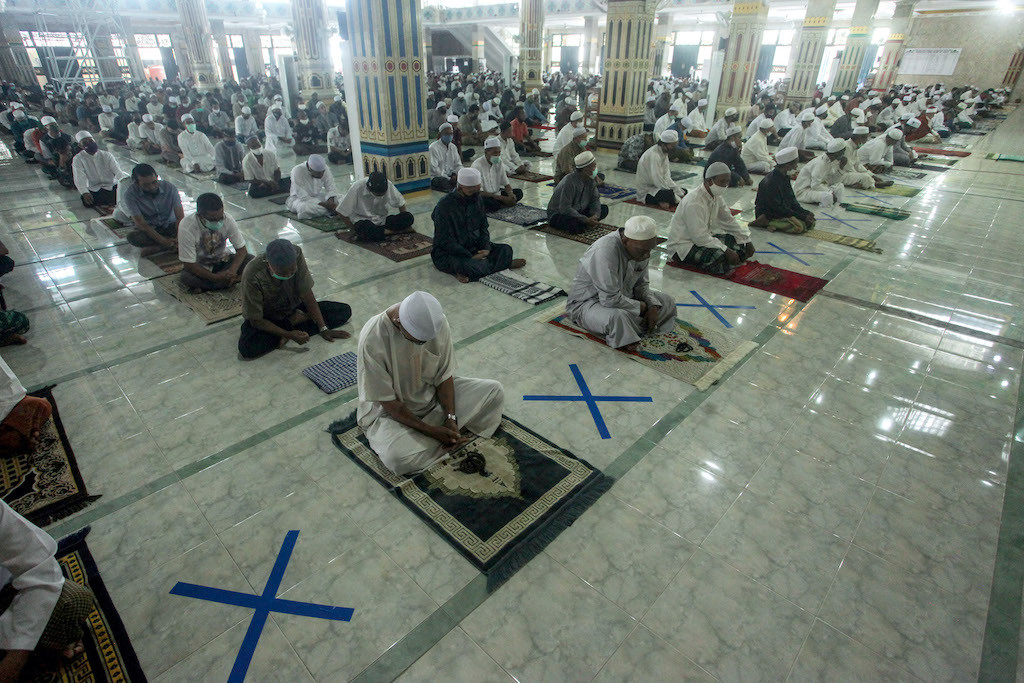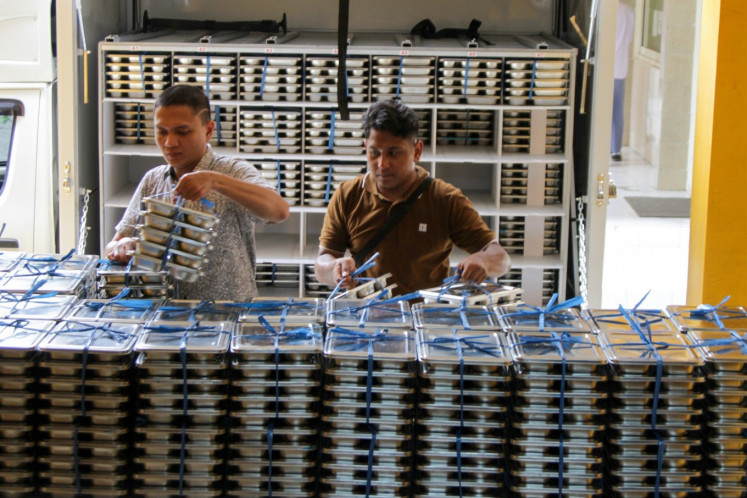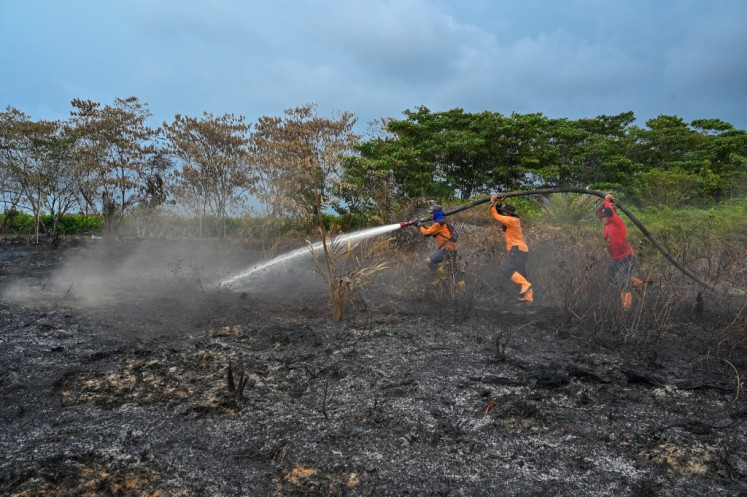Silent fortress puts religious teachings to test
Change text size
Gift Premium Articles
to Anyone

F
ewer activities at a neighborhood mosque over the past three months have not only further signified the urgency to fight the COVID-19 outbreak but have also highlighted different perspectives on how Muslims should approach religious teachings.
Calls to prayer are amplified through loudspeakers but people are not heading to the mosque in droves.
The mosque remains open but a meager number of congregants pray inside, lining up around half a meter apart from each other and some wearing masks. Prayer rugs are piled up in a corner behind them.
“We still allow people to pray but we do not hold mass gatherings, as instructed,” mosque head Sofwan told The Jakarta Post.
“When the municipal administration issued a decree against holding congregational prayers in mosques and the Indonesian Ulema Council supported it with a fatwa, we discussed the matter and consulted the religious elders in the district before deciding to impose a lockdown,” he said.
The ban has also forced the mosque management to either cancel or adjust other religious activities.
“We canceled a number of activities but some were held online,” Sofwan said.
Donation boxes are now placed at the gates of each of several clusters in the complex, as the mosque management tries to maintain funding.
The recently concluded month of Ramadan must have been the most uncelebrated fasting season in recent history, with no tarawih (evening Ramadan prayers), breaking-of-the-fast gatherings, i’tikaf (staying in a mosque to connect closely to God) and only sparse Quranic recitals.
It was a Ramadan to forget for some Muslims, including Budi Santoso, who was forced carry out tarawih and Idul Fitri prayers at home with his family, in addition to daily prayers.
He is known among fellow residents to be a strong proponent for the pray-at-home policy. When someone sought the possibility of holding Idul Fitri prayers in the open air in their cluster, he vehemently opposed the idea.
“We’d better follow what the authorities and ulema have instructed us to do,” he said.
Deterministic approach
In fact, many have defied calls against praying at mosques owing to their religious understanding, which according to lecturer Dani Muhtada, tend to be fatalistic and deterministic.
“Lack of government enforcement has made the policy less effective even when it is supported by religious organizations like Muhammadiyah and Nahdllatul Ulama,” Dani, head of the Center for the Study of Regulation and Public Policy at the School of Law, Semarang State University, told the Post.
“In big cities like Semarang, effective implementation is only found in urban areas, while the policy has had little effect on mosques in kampungs and on the outskirts. Many mosques still hold Friday prayers,” he said.
“Psychological factors also contribute to public defiance. People feel it is odd to not perform Friday prayers at a mosque,” he added.
Comments of rebellion against praying at mosques are rife on social media as people try to vent their frustrations.
“Why should we fear the coronavirus. The virus was created. We were also created. We should fear only the creator,” a comment shared from a WhatsApp group said.
“We go to the mosque to face Allah. We wash our hands, faces and feet. We are clean […] why should we be worried about contracting the virus,” another comment said.
Suyoto, who lives in South Tangerang, said the mosque in his neighborhood held daily and Friday prayers, per usual.
Although it had been designated as a red zone, the mosque’s management was reported not to have urged people to wear masks.
“Only very few congregants, including me, wear masks,” Suyoto said.
When asked if he was concerned about the situation, he said he always took precautionary measures by his washing hands.
He also believed his faith in religious teachings would save him from the disease.
“The Quran gives the supplication for safety,” he said. He also shared a prophetic narrative to strengthen his belief.
For Budi, his submission to docking at home to pray is also mandated in religious sources.
“We’ve been told to follow the authorities and clerics. As long as the authorities are not against religious teachings, we must follow them.
One must do their best before turning to God for help through prayer or supplications, he said.
“In the case of the pandemic, our efforts are, as recommended by the health authorities, to avoid gatherings to curb the spread of the virus. God also says religion does not overburden us and we are allowed to adjust our religious practices based on conditions,” he said.
Sofwan recalled that he was met with complaints after deciding on the mosque closure.
“They referred to a fatwa issued by someone who I don’t think can be trusted,” he said.









